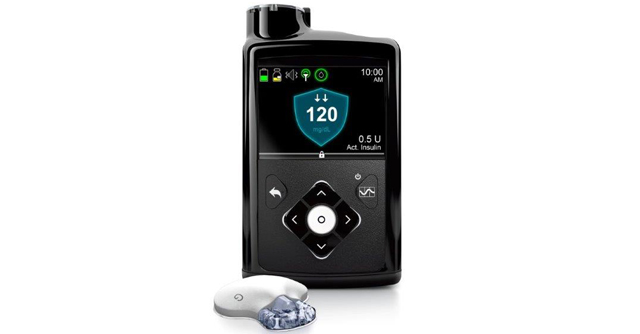This week the US Food and Drug Administration (FDA) approved the first artificial pancreas device, designed to automatically monitor glucose levels and administer insulin to patients with type 1 diabetes. The device – Medtronic’s MiniMed 670G – is a hybrid closed loop system approved for use in patients over the age of 14.
Patients with type 1 diabetes lack the ability to produce insulin in response to changing blood glucose levels. While the pancreas normally maintains a continuous level of insulin, those with type 1 diabetes often lack this basal level of the hormone in the blood.
“The FDA is dedicated to making technologies available that can help improve the quality of life for those with chronic diseases – especially those that require day-to-day maintenance and ongoing attention,” said Dr. Jeffrey Shuren, director of the FDA’s Center for Devices and Radiological Health. “This first-of-its-kind technology can provide people with type 1 diabetes greater freedom to live their lives without having to consistently and manually monitor baseline glucose levels and administer insulin.”
Comprised of a sensor which measures glucose levels under the skin, an insulin pump and an insulin infusion patch, the artificial pancreas adjusts insulin levels without the need for user input. The MiniMed measures glucose levels at five minute intervals, and only requires patients to manually adjust insulin doses after consuming a carbohydrate meal.
The medical device uses Medtronic’s SmartGuard HCL algorithm to automate glucose monitoring and insulin dosing activities. A customizable system, the MiniMed’s automation level can be changed based on physician and patient needs.
“With SmartGuard HCL, the ability to automate basal insulin dosing 24 hours a day is a much-anticipated advancement in the diabetes community for the profound impact it may have on managing diabetes – particularly for minimizing glucose variability and maximizing time in the target range,” said Dr. Richard M. Bergenstal, principal investigator of the pivotal study and executive director of the Park Nicollet International Diabetes Center in Minneapolis. “The data from the pivotal trial were compelling and I am confident that this therapy will be well-received by both the clinical and patient community.”
Approximately five percent of the diabetic community has type 1 diabetes, according to the US Centers for Disease Control and Prevention (CDC). Traditional management of the disease is very intensive, with patients needing to check their glucose levels consistently throughout the day, and self-administer insulin in order to avoid hyperglycemia.
“The FDA approval of the world’s first hybrid closed loop system is a culmination of many years of hard work and close collaboration with the clinical and patient communities to generate the body of evidence needed to advance this technology for those living with diabetes,” said Dr. Francine Kaufman, chief medical officer of the Diabetes Group at Medtronic. “We appreciate the unprecedented speed by which the agency approved our PMA submission to help bring this advanced insulin pump therapy so quickly to U.S. patients living with this challenging disease. We are committed to preparing for commercial launch as quickly as possible while ensuring we provide the most successful rollout of this novel therapy.”












Join or login to leave a comment
JOIN LOGIN